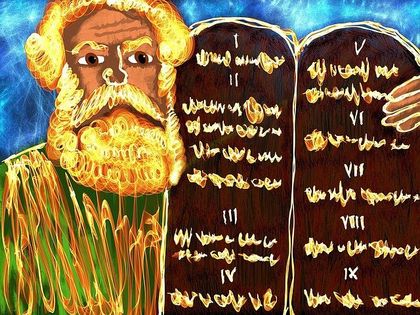A Manifesto of Church Unity: Part Three of Five.
 Photo: Pixabay (CC0)
Photo: Pixabay (CC0)
Last week, we highlighted the truth-element of our unity. Church unity is unity in the truth.
We are well aware that Christianity is more than just having a head-knowledge of given truths; nevertheless, Christianity is not less than that.
In other words, a faith that does not believe in the truth of the Word, the truth of the Father and the truth of the Son is not faith but a dream.
In much the same way that there can be no real church unity without the truth of God; there can be no real faith without knowledge.
UNITY IN THE TRUTH
Moving on, I would like to draw your attention to the practical aspect of the Christian life today.
In our local church we have both a Confession of Faith where the cardinal truths of Christianity are laid out and a Membership Statement wherein we describe, in general terms, what type of behaviour we expect from our fellow brethren with regards to their sanctification.
The first promise on our membership statement reads, “We will work and pray for the unity in the bond of peace”.
So, as a congregation, we promise to promote unity in our church by means of our actions and prayers. This means that we defend our brethren and we don’t allow others to speak evil about those in our congregation.
We also pray for the members of our local assembly throughout the week and ask the Lord to bless their respective families.
This reminds us that Christianity is not just a set of beliefs to be confessed; but a lifestyle to be obeyed.
JOHN 17 AND SANCTIFICATION
In John 17 we observe how the Word of God produces certain effects in the hearts of the disciples.
There are three main allusions to the sanctification of believers in John 17.
- In v. 6 it talks about keeping the Word.
- In v. 15 it mentions being kept from the evil one.
- In vv. 17 and 19 it speaks about being sanctified.
Sanctification begins the day we are born again. The disciples didn’t just believe certain doctrines but they also lived in a distinct manner because they believed the Word as they had been born from on high.
Christ expects his people not only to believe the Gospel but also to live in sanctification. When a person truly believes the Gospel of Christ’s death and resurrection for sinners, the process of sanctification commences.
There are two great dangers associated with sanctification. On the one hand, there is legalism. On the other, there is licentiousness.
LEGALISTS
The legalists always teach that you’ve got to “add on” to the Gospel in order to be saved. Instead of teaching that the believer is justified by faith in the Lord Jesus Christ; the legalist –as we can read in the epistle of Galatians- thinks that faith alone in Christ alone is not sufficient to save a soul.
 Paul penned the epistle of Galatians to defend the Gospel and attack the judaizing legalists. / Pixabay.
Paul penned the epistle of Galatians to defend the Gospel and attack the judaizing legalists. / Pixabay.Therefore the legalist “adds on” good works or, in some cases, the absence of bad works for someone to go to heaven rather than trusting entirely in the imputed righteousness of the glorious Redeemer Jesus Christ.
A legalist downplays the all-sufficiency of the saving work of Emmanuel and thus promotes a religion based upon human merit which we see exemplified in Rome.
LIBERTINES
The licentious ones are those who use the grace of God as a pretext to sin. 2 Peter 2 and Jude are two good chapters which condemn any notion of licentiousness.
Since the libertines believe themselves to be saved by faith alone in Christ alone, they reason that they can do whatsoever they please.
And so they preach that the moral law of God –namely, the Ten Commandments- no longer apply to New Testament believers.
There is a sense in which the libertines are right (as Martyn Lloyd-Jones underscored). Salvation is only and exclusively found in the work of Christ in our favour. That much is perfectly true.
But (and this is a big ‘but’) they forget that a person who has truth faith in Christ is a born-again creature who has a renewed will which delights in obeying the revealed will of God.
 Libertines downplay the role of the moral law of God in sanctification. / Pixabay.
Libertines downplay the role of the moral law of God in sanctification. / Pixabay.It is a person who longs to be sanctified. He wants to be made like unto the Son of God and he obeys the Lord out of the great love which he has for his Saviour.
Here are three quotes taken from Jesus’ lips all recorded in the Gospel of John:
- If ye love me, keep my commandments (14:15).
- He that hath my commandments and keepeth them, he it is that loveth me (14:21).
- If ye keep my commandments, ye shall abide in my love (15:10).
If you have truly been born again, you will love the commandments of the Lord. They will not be burdensome to you.
THE PLACE OF WORKS IN THE CHRISTIAN LIFE
Now, so as not to fall back into the trap of legalism (which turns human works into co-saviours), we state as the Reformers did that works are important; but not to be saved rather to show that we have been saved.
The legalist goes wrong when he thinks that his works justify him before God whereas the libertine messes up by not grasping that the new nature of a child of God detests sin.
Both heresies are very real threats for the Christian church today.
As Bible believing evangelicals, we defend the doctrine of the sanctification of the believer. But we understand that our sanctification is the tangible evidence that we have passed from death to life.
As our Lord so aptly put it, “By their fruits ye shall know them” (Matthew 7:20).
 The sign that someone has truly been born again is spiritual fruit. / Pixabay.
The sign that someone has truly been born again is spiritual fruit. / Pixabay.Fruits don’t give live to the tree. The fruits simply testify to the reality that the tree is alive.
Christ prays for the sanctification of his own in our chapter. He says in vv. 14-17:
- I have given them thy word; and the world hath hated them because they are not of the world, even as I am not of the world. I pray not that thou shouldest take them out of the world, but that thou shouldest keep them from the evil. They are not of the world, even as I am not of the world. Sanctify them through thy truth: thy word is truth.
We learn here that the great tool used by God Almighty to sanctify His people is the Word.
Once again, we come back to the key truth we underlined in last week’s article: church unity is unity in the truth of the Word of God.
But now we are going to go on a little bit further.
OBEY THE WORD
It’s one thing to recognize that the Bible is the inspired Word of God; but it’s a completely different thing to apply and obey it. The Word of God was given to us so that we might know what to believe and how to live.
2 Timothy 3:16 is a fabulous example of this truth, “All Scripture is given by inspiration of God and is profitable for doctrine, for reproof, for correction, for instruction in righteousness”.
The first two nouns –doctrine and reproof- in this context have to do with beliefs; whereas the last two –correction and instruction- focus upon the practical life. So the Word is entirely sufficient for every area of our life of faith and practice.
What do we need to believe? The Bible tells us so! How do we have to behave? The Bible tells us so!
The Lord gave us His Word with this double purpose. And Scripture helps us because, as Christ points out in his prayer, the world hates us.
The world, according to Luther, is the Decalogue written backwards. If the Bible says, “Thou shalt have no other gods before me”; the world will say, “Worship everything: your comforts, your money, your ego, your family, pleasure, etc.”
 Martin Luther was convinced that the world was an anti-Christ system under the power of the devil and thus opposed to the Word of God. / Pixaay.
Martin Luther was convinced that the world was an anti-Christ system under the power of the devil and thus opposed to the Word of God. / Pixaay.If the Bible says, “Thou shalt not commit adultery”; the world will say, “Fornicate all you can”.The world has always hated God’s holiness. And if it were not for the rock and the light of the Word, how could we keep standing amidst such great hostility?
The foremost problem, however, for the church is not the world itself. It is when the world starts to stick raise its ugly head from within the church, influencing from within rather than from without.
It’s completely normal for the world to defend everything that the Bible is against. But what’s not normal –and what must not be allowed- is for these same corrupt tendencies to show up within the Lord’s camp.
Believers, as a general rule, are on their guard in the world. But when these same voices start making themselves heard in the church, people can be greatly deceived.
We have to pray much for spiritual discernment so that the enemy will deliver us from living contrary to the Word.
If you think Satan will come dressed as a wolf, you are making a big mistake. The devil comes dressed up as an angel of light, as a smooth preacher with pleasant words.
Lucifer is a humanist who fights against our call to take up our cross and to deny ourselves. It is Beelzebub who says to us, “Be it far from thee... this shall not be unto thee”.
It is Satan who says that we are not responsible for our sin; but rather our parents, our children, our spouses, our upbringing, our health, our bosses, the weather or anything else other than us.
According to the false prophet, we are never guilty!
The devil draws near to the church to sow his humanist lies. And the weapon which can “cut chunks out of him” (as Iain Paisley so aptly put it) is this holy Word of God.
This Word doesn’t just distance us from false beliefs but also from sinful lifestyles which do not glorify the Lord.
UNITY, SIN AND CHURCH DISCIPLINE
Today we are dealing with church unity. And there can be no unity where sin is being tolerated.
Our communion is in the light, “If we say we have fellowship with him and walk in darkness, we lie and do not the truth: but if we walk in the light as he is the light, we have fellowship one with another and the blood of Christ his Son cleanseth us from all sin” (1 John 1:6-7).
A true believer needs to accept the revealed truth of God and to apply it to his life. And it is here where we come across a great forgotten mark of the church: church discipline.
We need our brethren to look out for us and we must be open to their words of correction so that we may mature in the Lord.
If we see any brother or sister flirting about with sin, it is our duty to rebuke them in the love of the Lord so that their souls are not damaged and that the local church is delivered from pollution.
Unfortunately, we live in an age when few congregations take church discipline seriously because they don’t want people to leave the church.
But we need to understand is that a person who doesn’t believe in discipline and doesn’t want to be corrected –even if he’s a praise leader or if he’s five-days-a-week at church or he arrives on time for every meeting- he is not a true disciple and he doesn’t belong to the church of God.
He’s not a sheep but a goat because he doesn’t want to submit himself to the doctrine of Christ. He has created his own selfish version of Christianity where he is seated upon the throne and not God.
And the best thing for any local congregation is that the insubordinate and rebellious spirits leave so that they don’t start thinking they’re really saved.
Dear readers, there can be no church unity if there is no light, if there is no sanctification, if the world is behind our pulpits preaching humanistic sermons, cancelling the doctrine of sin and the need to deny ourselves.
Church unity is always unity in the light, unity in holiness.
Next week on Fresh Breeze: Church Unity is Unity in the Spirit (Part 4)

Las opiniones vertidas por nuestros colaboradores se realizan a nivel personal, pudiendo coincidir o no con la postura de la dirección de Protestante Digital.
Si quieres comentar o